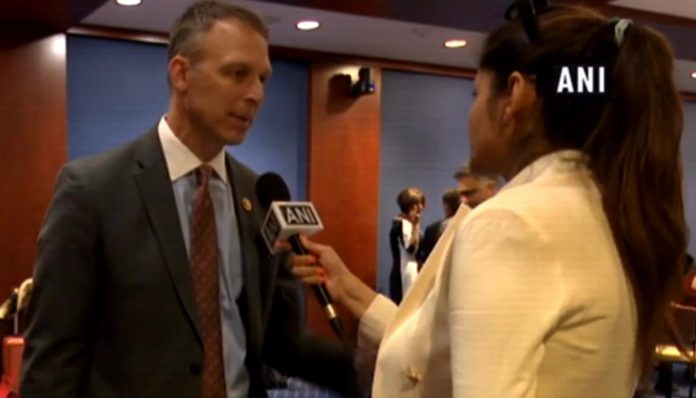Scott Perry, a member of the US Congress from Pennsylvania, reaffirmed support to the religious and ethnic minorities, who came together on Tuesday to stop religious radicalism in South Asia, particularly in Pakistan.
Scores of South Asian experts, members of the US Senate and House of representatives flocked the Capitol Hill to discuss and urge Pakistan to stop the persecution of ethnic and religious groups.
While speaking to news agency ANI, Perry said, “Pakistan needs to be isolated among the community of nations if they continue to harbour terrorism.”
Perry also highlighted the plight of all suffering ethnic and religious groups and how Pakistan has not yet taken any strong action against the terrorism operating from its soil.
“We don’t support the fact that minorities are being suppressed anywhere for their religious beliefs or otherwise, and this is one of the reasons why the United States-Pakistan relations remain strenuous because we cannot accept that,” Perry told ANI.
Earlier this year, the lawmaker introduced a resolution in the House of Representatives demanding action by Pakistan on eliminating safe haven to terrorists. The resolution also condemned the Pulwama terror attack carried out by Pakistan based terror group Jaish-e-Mohammed (JeM) on February 14 that killed 40 Indian security personnel.
“Pakistan has to understand that there is no upside gain in allowing this (terror), whether they support it or allow it. They may not be committing it but these are crimes of omission which allows it to occur and then turn your face as it occurs. There can be no upsides or no profits for Pakistan on allowing terror,” the lawmaker added.
Echoing Perry’s contention, representatives of Mohajirs, Pashtun and Baloch communities on Tuesday briefed the gathering about the human rights violation and discrimination being faced by their communities in Pakistan.
The group was led by the Voice of Karachi and South Asia Minorities Alliance foundation chairman Nadeem Nusrat. He particularly pointed out the devastating effects that every ethnic and religious group in Pakistan is suffering.
“There are ways to put pressure on Pakistan, either through sanctions or involving the European countries, in order to provide relief to the minorities. We are not demanding any charity. As citizens we have rights but Pakistan has only guaranteed those on papers,” Nusrat noted.
“We raised the issue of Karachi and other urban parts of Pakistan, where human rights violations have been taking place on a massive scale. While we bring to light the plight of religious minorities, we also talk about the persecution of ethnic minorities in Pakistan,” he further said.
































